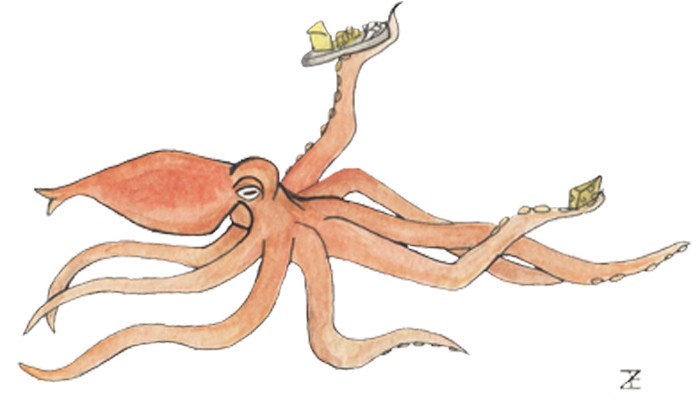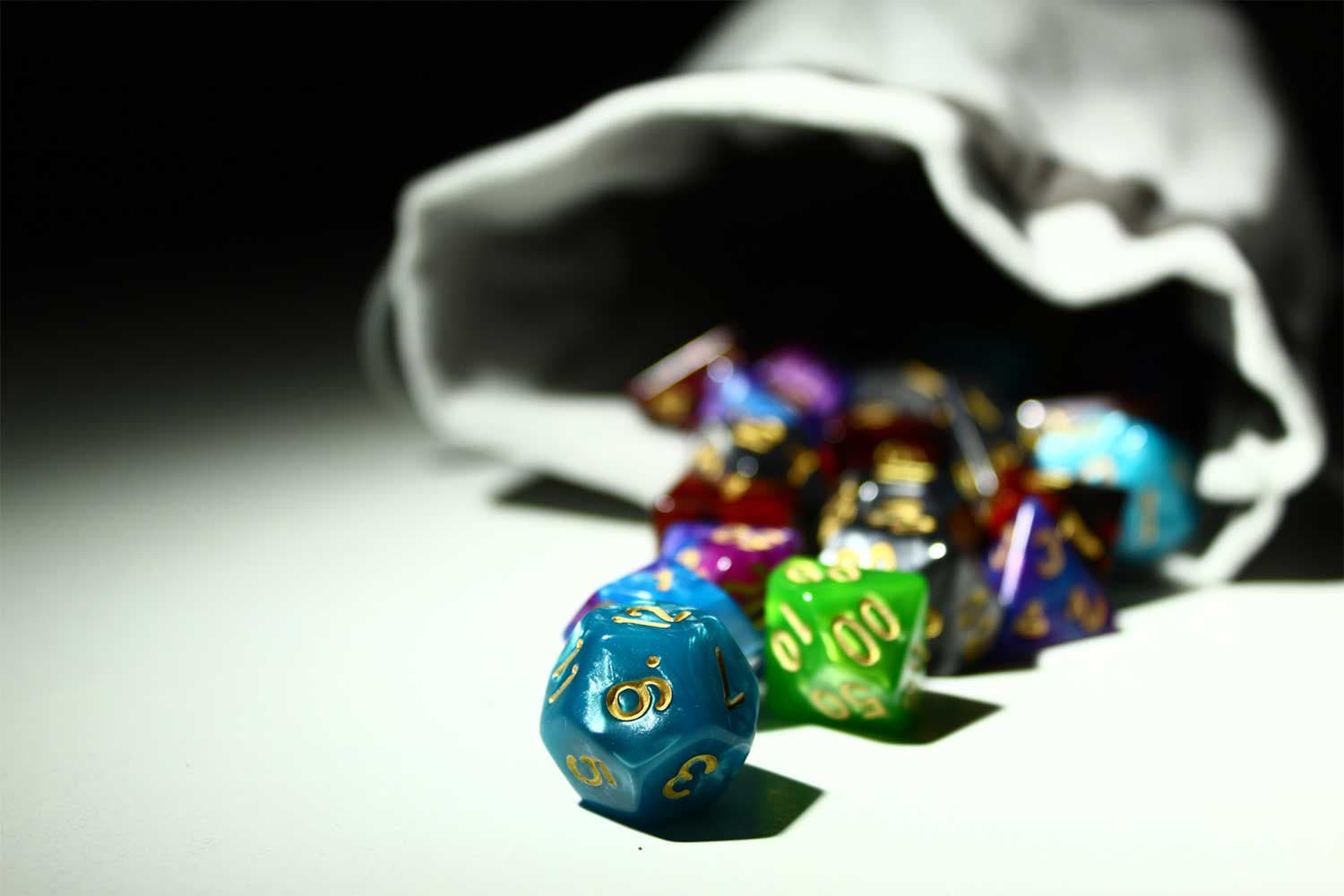How a Gaming Podcast Promotes Marine Conservation
Meet the scientists using Dungeons & Dragons to teach people about their work.
“It’s ‘octopuses,’ not ‘octopi’!” A small, but firm, voice rang out in the Washington, DC, auditorium. The other panelists and I had to lean over the table to see the speaker: a girl who looked no older than nine and was dressed like a princess.
“‘Octopus’ was derived from ancient Greek, and Greek words are pluralized with an ‘-es,’” she explained. Plurals ending in “-i” typically come from Latin.
I was amazed by her confidence; she appeared to have no qualms about correcting a marine scientist in front of the crowd at our panel at Awesome Con, about the Dugongs & Seadragons podcast on which I was a guest player. She continued with a comment about octopi (sorry, octopuses) and jellyfish that used words and facts I didn’t learn until university. As an avid listener of the podcast — which mixes fantasy quests with marine science — she was serious about getting her facts on ocean life right.

Listener Ilana Zeitzer painted this cheese-bearing octopus, inspired by the podcast recorded at Awesome Con in April 2019.
Dugongs & Seadragons is a spin on Dungeons & Dragons (D&D), a fantasy role-playing game where players create imaginary characters who go on quests to save the world, find treasure, and perform heroic acts. In Dugongs & Seadragons, the quests relate to marine ecology and biology, with players going on sea voyages, or striving to save marine wildlife and preserve precious habitats.
A group of marine scientists from around the world play and narrate the game for the top-rated podcast, incorporating information on marine science and conservation. They’re on a mission to carry out “stealth science education” while having a “nerdy good time,” explains Chris Parsons, a dolphin and whale researcher who produces and edits the podcast.
Dugongs & Seadragons came into being at the 2018 International Marine Conservation Congress in Kuching, Malaysia, which I helped plan along with my partner Travis Nielsen, a biologist who studies invertebrates and is a regular player on the podcast. He was on the teleconference where it all began: The congress’ events committee was planning networking events, when one of the committee members mentioned they had to get off the call to head to a D&D game. They realized they all played, and decided to have a game at the conference.
“The rest is infamy,” recalls Joshua Drew, one of the conference organizers, and a specialist in vertebrate conservation biology at the State University of New York, Syracuse.
At the inaugural Dugongs & Seadragons game in Kuching, the players recast traditional D&D characters — including dwarves, elves, gnomes, and half-humans — as grad students tasked with building “habitats for huge manatees” (a play on the housing non-profit Habitat for Humanity) in a barren ecological environment as an extra credit project. To succeed, they had to find a magic staff to help them grow seagrass for the manatees to eat. This involved setting sail in pursuit of a thief who’d stolen the staff, and fighting off various beasts and thugs along the way.
The players cast dwarves, gnomes, and half-humans as grad students building “habitats for huge manatees.”
Just like in D&D, the players chose actions — like lying, attacking, and casting spells — and then rolled dice to determine how successful those actions would be. The higher the roll, the more successful the action. But a run of bad rolls could kill a character. As the game progressed, the “Dungeon Master” and the players worked together to narrate the quest, throwing in marine biology facts and questions for the audience along the way.
The event was a huge success, with members of the audience asking to be involved in future adventures. The Marine Conservation Happy Hour podcast, which recorded the game for an episode, also helped spread the word. There was so much interest from the marine science community, that the participants decided to turn Dugongs & Seadragons into a regular event, and started recording their own podcast.
The regular players — whose characters include a half-demon professor, a comical dwarf cleric, and an ocean druid — call themselves the “Cephalo-squad.” (The name is derived from “cephalopod,” the group of invertebrate marine animals including squids, octopuses, cuttlefish, and nautiluses.) They bring science into the game through events in their quests. In one episode, the Cephalo-squad is tracking a pod of blue whales when they run into Livyatan Melvillei, an extinct species of sperm whale. They tell the audience about how it was at the top of the food chain, and died out 9–12 million years ago.
Listeners also learn about marine biology through interviews with the cast. In one episode, PhD student Matthew Tietbohl — who plays a half-dragon, half-human character — talks about his research into how coral reefs function within the unique biodiversity of the Red Sea, and how a tropical bear species in Borneo inspired part of the game’s storyline. In another episode, shark biologist Melissa Marquez talks about her research into how folklore in Australia shaped perceptions of chondrichthyans, the class of fish that includes sharks, skates, rays, and chimaeras. She also touches on her Druid character (who can change shape into animals) and surviving a crocodile attack while filming an episode for the Discovery Channel’s Shark Week.
Our oceans are wild and wonderful — full of the beautiful and the bizarre.
The podcast’s makers aim to teach listeners about marine conservation and natural history in an informal creative way, outside the rigid formats of documentaries, classrooms, lecture halls, and labs.
They don’t have to look far for inspiration, explains Frances Farabaugh, a behavioural ecologist who plays Dugongs & Seadragons, and studies the relationship between sharks and reefs at Florida International University. “Our oceans are wild and wonderful — full of the beautiful and the bizarre,” she says. “They provide us with so much, and we have a lot of work to do to make sure they continue to do so.”
To listen to the podcast, visit dugongsandseadragons.weebly.com/ or search for it on your favorite podcasting platform.
Print Issue: Winter/Spring 2020
Print Title: Here There be Sea Dragons
